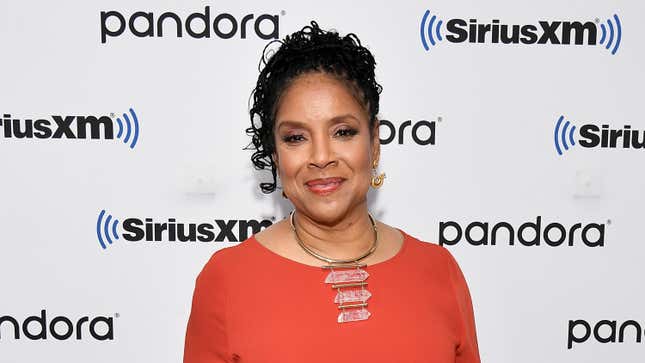
It’s been about five years since Phylicia Rashad’s comments about the women who accused Bill Cosby of sexual assault and misconduct prompted a flurry of discussion, debate and disappointment—and now, she’s speaking out once again.
In 2015, the quote “forget these women” made the rounds in the news cycle, in reference to Rashad’s interview with Showbiz 411—a quote Rashad has since clarified, noting that she did not use that specific phrase and instead said, “This is not about the women. This is about something else. This is about the obliteration of a legacy.” Showbiz 411’s Roger Friedman wrote a clarifying article, claiming he did not misquote Rashad but did state she did not say the words in a dismissing way.
In a recent interview with Bustle promoting her latest film Black Box, the topic remained primarily focused on the show’s legacy, rather than Rashad’s personal relationship with Cosby. In the interview, contributor Rebecca Carroll specifically asked Rashad what she feels about people who feel they cannot watch The Cosby Show again, given what is now considered to be Cosby’s tarnished legacy.
“I don’t know why anybody would feel that way,” Rashad said. “I just don’t accept what somebody says because they say it, and they say it in a loud voice. The internet has given a lot of anonymous people a very loud voice. And this, too, has happened before.”
In an unexpected comparison, Rashad brought up Zora Neale Hurston’s legacy in order to drive her point home about the power of legacy and what can happen to it when tainted.
Carroll writes:
It’s almost too heartbreaking to accept Rashad’s continued dismissal of Cosby’s accusers—she is, after all, a modern Black queen. But she insists that there is a lesson to be learned here. “Zora Neale Hurston died a pauper,” Rashad says, sharpening her tone. “And do you know why?” I knew that Hurston, the celebrated writer best known for her 1937 novel, Their Eyes Were Watching God, had died poor, and gathered through various historical accounts that it was because she’d had difficulties getting her work published (what Black writer throughout history hasn’t?). But I had to admit to Rashad that I didn’t know any further specifics.
“Oh, you should do a little research on that,” Rashad says, raising her eyebrows at me. “You should go back and look at some charges that were brought up against her that didn’t make any sense. And look at what happened when the judge had thrown out the case, but it had gone through [Black magazines], through this step and the other, and her books were taken off the shelf.”
You have to Google the specific words “falsely accused” along with “Zora Neale Hurston” in order to turn up the story. According to a 2002 piece in The New York Times, in 1948, “a vindictive neighbor accused Hurston of sexual relations with her 10-year-old son. The charges were patently false—Hurston had been in Honduras at the time, and the boy was mentally unstable—but she was indicted, and the story leaked to a Black newspaper, which sensationalized it...The case was finally thrown out, and, characteristically, Hurston rebounded to work on a final published novel, Seraph on the Suwanee, and a unfinished nonfiction work called Herod the Great that no publisher would touch.”
While these circumstances aren’t quite the same, it does stand to note that the Black community has grappled with the reckoning of the once-revered show’s legacy. The fact is, Cosby isn’t Dr. Huxtable and he shouldn’t be placed on a pedestal because he portrayed a beloved fictional character. On the nostalgic romanticizing of The Cosby Show, Kirsten West Savali wrote at The Root at the time:
There has been a romanticization of both Cosby and Cosby that reeks of arrogance and delusion. Despite what Rashad and others may believe, Cosby isn’t the savior of black America, and the Illuminati isn’t out to get him. The Cosby Show was not then, and certainly isn’t now, the only media depiction of a healthy black family. And the dismantling of Cosby’s benign, fatherly facade is a blow to nothing but his own image and 1980s nostalgia.
Though Rashad had spoken on this controversial topic years ago, it is clearly something that may be an ongoing conversation; perhaps even something that we discuss in another way years from now, Rashad intimated.
“And so I know what I know, and I just stay with what I know,” Rashad noted. “And it will happen in time, that this will come around another way, as it often does. And then people say, ‘Oh.’”

